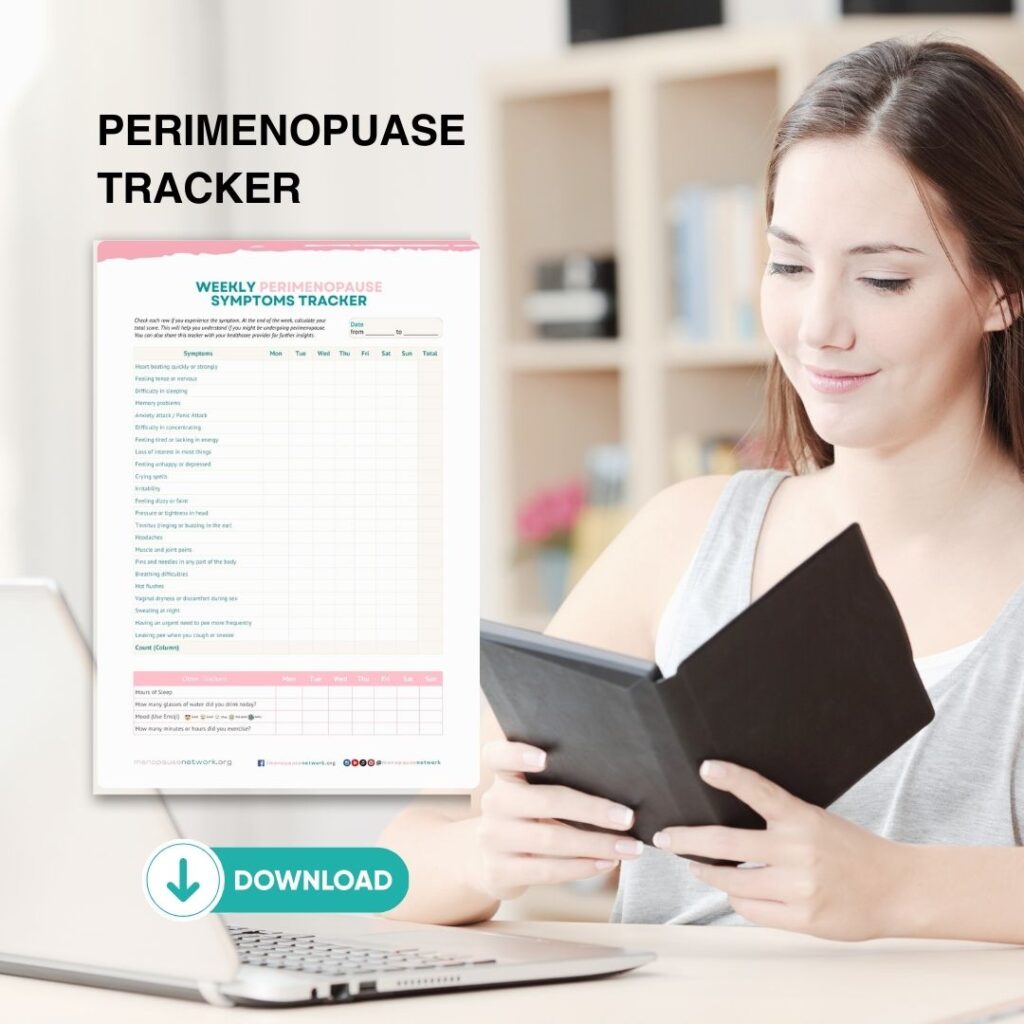10 Weird Symptoms No One Told You Were Perimenopause

So, you’ve hit your 40s and suddenly weird things are happening to your body. You’re snapping at your partner over nothing, sweating like you’re running a marathon while sitting still, and for some reason, your scalp feels like it’s buzzing? Welcome to perimenopause — the hormonal rollercoaster nobody warned you about.
Sure, we all expected hot flashes and maybe a little moodiness. But what if I told you that perimenopause comes with a grab bag of bizarre symptoms that can leave you wondering if you’re just imagining things? You’re not. Let’s unpack the strange but very real ways your body starts to change during perimenopause — and what you can do about them.
1. Burning Mouth Syndrome (Yes, It’s a Thing)
Ever feel like your tongue is tingling or burning, like you’ve scalded it with hot coffee — even though you haven’t? This odd sensation is called Burning Mouth Syndrome (BMS), and it’s surprisingly common among women in perimenopause.
Researchers believe fluctuating estrogen levels affect the pain receptors in your mouth, making you more sensitive. BMS can also come with a dry mouth or altered taste perception — like everything tastes metallic or bitter.
What to Do: Avoid spicy and acidic foods, stay hydrated, and ask your doctor about saliva substitutes or hormone therapy if it gets unbearable.
2. Electric Shock Sensations
Yep. Some women describe a quick zap or electric jolt sensation just under the skin — often in the head, arms, or legs. It’s like your nerves are short-circuiting.
While this might sound like something out of a sci-fi movie, it’s actually believed to be linked to estrogen withdrawal impacting nerve endings or the central nervous system.
What to Do: Deep breathing and magnesium supplements may help calm your nerves. Always consult a healthcare professional if the sensation becomes frequent or painful.
3. Itchy Crawly Skin (Formication)
This one feels downright creepy. Formication is the sensation of bugs crawling on or under your skin — and no, there are no actual bugs.
Why it happens? Declining estrogen affects collagen production and skin hydration, making your skin thinner and more sensitive.
What to Do: Use thick moisturizers, take cool showers, and ask your doctor if hormone therapy might help.
4. Sudden Bouts of Anxiety or Panic
You’re lying in bed, trying to sleep, and boom — your heart races, your chest tightens, and dread washes over you. What gives?
Perimenopause can trigger intense anxiety or panic attacks, even if you’ve never had them before. Estrogen affects serotonin and other mood-regulating chemicals, so when it drops, your emotional stability can take a hit.
What to Do: Mindfulness, yoga, and magnesium can help ease symptoms. For persistent anxiety, consider CBT therapy or speaking with a menopause-savvy therapist.
5. Dizzy Spells
One moment you’re fine, the next, the room feels like it’s spinning. Dizziness can be another strange symptom thanks to changes in blood vessels and hormone fluctuations.
What to Do: Stay hydrated, move slowly from sitting to standing, and avoid skipping meals. If dizziness persists, it’s worth ruling out other conditions like vertigo or low blood pressure.
6. Tinnitus (Ringing in the Ears)
Believe it or not, that annoying ringing in your ears might not be from too many concerts in your 20s. Estrogen helps regulate blood flow, and when levels drop, it may impact the tiny blood vessels in your ears, leading to tinnitus.
What to Do: Limit caffeine, avoid loud noises, and check with an ENT specialist to rule out other causes.
7. Gum Problems or Bleeding Gums
Hormonal changes during perimenopause can lead to inflammation in the gums — and that means tenderness, sensitivity, and even bleeding while brushing.
What to Do: Up your dental hygiene game with regular flossing, see your dentist for cleanings, and consider a soft-bristled toothbrush.
8. Body Odor Changes
Okay, this one’s awkward. You’re using the same deodorant, showering daily, and still — you smell… different.
Shifts in hormone levels can mess with your body’s chemistry, changing your natural scent and how you sweat.
What to Do: Try natural deodorants with baking soda or magnesium, wear breathable fabrics, and wash with antibacterial soap if needed.
9. Memory Lapses and Brain Fog
Forgot what you walked into the room for? Lost your train of thought mid-sentence? That mental cloudiness is real — and super frustrating.
Estrogen supports cognitive function, and during perimenopause, you might feel mentally off-kilter more often than not.
What to Do: Sleep well, exercise regularly, and feed your brain with omega-3s, B vitamins, and leafy greens. Apps like Lumosity can also help keep your brain sharp.
10. Tingling Extremities
Hands or feet feel numb or tingly — like pins and needles? Estrogen decline can mess with circulation and nerve sensitivity, making your limbs feel weirdly disconnected.
What to Do: Gentle stretching, massage, and staying warm can help. If tingling is severe or one-sided, definitely consult a doctor to rule out other causes.
Final Thoughts: You’re Not Crazy, You’re Perimenopausal
Anyway, here’s the thing — perimenopause doesn’t look the same for everyone. For some, it’s mild. For others, it’s like their body turned into a stranger overnight. But one thing’s for sure: you’re not alone, and you’re definitely not losing it.
Start tracking your symptoms, find a healthcare provider who actually listens, and don’t be afraid to advocate for yourself. These weird symptoms aren’t “just in your head.” They’re real, valid, and manageable.
Oh, and talk about it. With your friends, your partner, your doctor. The more we normalize perimenopause, the less lonely (and confusing) it will feel.

Free Download
Perimenopause Tracker
- Monitor Symptoms: Track physical and emotional changes daily.
- Identify Patterns: Discover triggers and patterns in your symptoms.
- Improve Communication: Share accurate details with your healthcare provider.
- Take Control: Empower yourself with insights to make informed decisions about your health.
References
Bachmann, G. A., & Leiblum, S. R. (2004). The impact of hormones on menopausal sexuality: A literature review. Menopause, 11(1), 120–130. https://doi.org/10.1097/01.GME.0000108174.04238.41
Harvard Health Publishing. (2020). Anxiety and physical illness. Retrieved from https://www.health.harvard.edu
National Institute on Aging. (2021). What is menopause? Retrieved from https://www.nia.nih.gov/health/what-menopause
North American Menopause Society. (2022). Perimenopause and mood changes. Retrieved from https://www.menopause.org/
Women’s Health Concern. (2023). Menopause FAQs. Retrieved from https://www.womens-health-concern.org/help-and-advice/factsheets/menopause-faqs/
Mayo Clinic. (2023). Menopause symptoms. Retrieved from https://www.mayoclinic.org/diseases-conditions/menopause/symptoms-causes/syc-20353397
